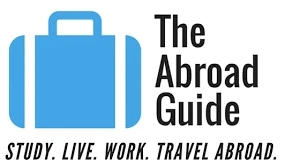Every year thousands of young people make the decision to travel abroad to study. But thousands of young people do not yet know how to go about preparing for their international trip. And even fewer have the information in front of them that will help them decide whether or not to go and study abroad!
This Guide To Study Abroad is the perfect answer for anyone who has never considered traveling abroad to study. It provides a comprehensive outline of all the main considerations you should take into account before embarking on your trip. And it includes three key questions to ask yourself before travelling: what is the cost, what are my other options, and what can I do if the plans fall through?
As the cost associated with studying abroad is expensive, it is important to understand exactly how much you can expect to spend before you start planning your trip. The good news is that this Guide To Study Abroad is prepared in such a way that it makes planning your international trip easy and painless. It takes you through all of the various costs involved, including accommodation, flight tickets, study materials, as well as any travel insurance that you will need whilst studying in your host country. All of these resources can be found on the Guide To Study Abroad website and they are clearly detailed and easy to read.
Once you know how much you are realistically going to spend before you leave home, you can start trying to work out which program would be the best choice for you. There are basically two types of study abroad programs available on the market today - one is a full time program, and the other is part time. If you are the type of student that needs more than twelve months to complete their degree, then a full-time programme is likely to be the best option for you. In this case you will find all of the necessary financial support available, as well as access to cultural learning opportunities to immerse yourself within another culture.
When you have done your research into both part time and full time study abroad programs, it is important to make sure that you ask yourself a few key questions. Firstly, if you are financially able, you will probably want to find out what the costs will be, as well as whether you can qualify for aid. The main difference between studying abroad on a part time basis and a full-time basis are that you are not expected to return to school each day. Many students choose to come back to full time college to complete a degree, so it can be tempting to think that you won't have to leave home if you are not financially stable to do so. The truth is, you may not be eligible to get a loan or need to demonstrate financial need, so be sure to ask your school about this when you go to the pre-departure interview.
After you have received your acceptance to study abroad in Spain, you will then need to choose which type of program you wish to apply for. Spain offers many different scholarships, bursaries, and study loans, so you should be able to find something suitable to suit your budget. Most major universities in the UK have their own study abroad office that can help you with the application process, so you can apply for anything that suits your needs, packers and movers as long as it falls under the terms and conditions of your scholarship or bursary.


